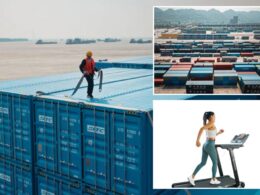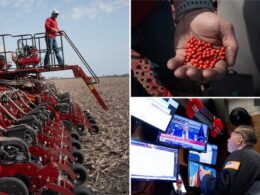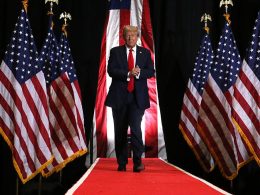Volkswagen is holding “fair” and “constructive” talks with the United States government on tariffs and wants to make further investments in the country, CEO Oliver Blume told German newspaper Sueddeutsche Zeitung.
Several foreign companies have announced new US investments in response to President Donald Trump’s import tariffs, but German carmakers have been more cautious about committing more resources to what is their biggest export market.
Volkswagen’s Audi brand, which has no production in the United States, is planning to produce some models in there, although the brand has said that the plan pre-dates the Trump administration.
“So far, we have had absolutely fair, constructive discussions,” Blume told the newspaper in an interview published on Friday. “I was in Washington myself and we have been in regular dialogue ever since.”
Blume, who also leads Porsche AG as CEO, said Volkswagen’s main contact in Washington was US Commerce Secretary Howard Lutnick, adding he had agreed to keep any details of the discussions confidential.
Sources told Reuters earlier this week that Germany’s carmakers, including Volkswagen, were in talks with Washington over a possible import tariff deal, seeking to use their US investments and exports as leverage to soften any blow.
Trump’s trade war has cost companies more than $34 billion in lost sales and higher costs, according to a Reuters analysis of corporate disclosures, with companies pursuing various strategies to cope.
Most of the tariffs were blocked by a US trade court this week, but a federal appeals court has temporarily reinstated them to consider the Trump administration’s appeal of the lower court’s ruling.
Asked what Blume was offering in the talks, which aim to reduce a 25% import levy implemented earlier this year, he said: “The Volkswagen Group wants to invest further in the USA. We have a growth strategy.”
Blume said the Volkswagen Group already employed over 20,000 people directly and over 55,000 people indirectly in the United States, also singling out a $5.8 billion investment in US company Rivian.
“We would build on this with further, massive investments,” Blume said.
Such investments should be factored into any decisions regarding tariffs, added Blume, who said he was hoping Brussels and Washington will reach a broad deal for all industries.
Blume avoided being drawn on a timeline on when a deal with Washington could be struck, when asked about BMW CEO Oliver Zipse’s optimistic assessment that tariffs would likely fall from July.
“Of course, I also want it to happen quickly. But it depends on many factors and I can’t promise anything.”








